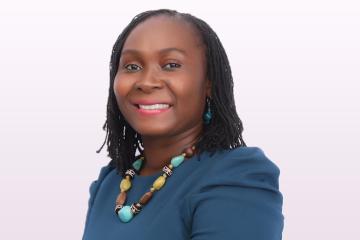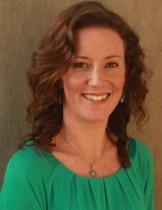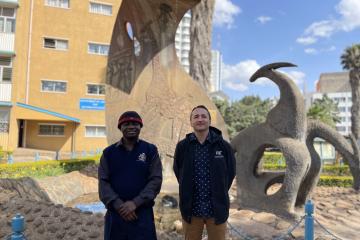
African Scholar Spotlight: Dr. Evans Osabuohien

This post is part of our ongoing series showcasing the work and perspectives of economists from the African continent who are leading randomized evaluations. Through our African Scholars Program, we hope to help create more opportunities for African researchers to advance the research agenda on the continent through randomized evaluations.
In this spotlight, we speak with Dr. Evans Osabuohien, Professor of Economics and Head of the Department of Economics and Development Studies at Covenant University in Nigeria. Evans’s primary research interests relate to international economics, institutional economics, agricultural economics, and the economics of land use.
What drew you to the field of development economics and, in particular, working with impact evaluations?
Growing up in a small town in Delta State, Nigeria, I witnessed firsthand the development challenges and needs that my community faced. My parents (of blessed memory) worked as small-scale farmers, and although my upbringing was not impoverished, I saw the struggles that many households in my community faced.
While pursuing admission for higher education, I spent two years teaching kindergarten, primary and secondary school. This experience ignited my interest in academia and research, and ultimately led me to complete my PhD at Covenant University. Prior to the conclusion of my PhD, I had the opportunity of being hosted at Lund University in Sweden as a Guest Doctoral Fellow funded by the Swedish Institute. Following the completion of my doctoral studies, I was fortunate to secure a postdoctoral fellowship in Germany funded by the Alexander von Humboldt Foundation.
During my time in Germany, I delved into impact evaluation for the first time, gaining valuable experience conducting research in agriculture using quasi-experimental methods such as difference-in-differences and propensity score matching. This experience solidified my dedication to research and inspired me to continue exploring ways to improve development outcomes in African communities.
You and your coauthors have recently been funded by J-PAL’s Digital Identification and Finance Initiative. What research question are you trying to answer through this project and how does it relate to your research interests?
Our project titled “Assessing the Effect of Digital and Flexible Payment Options on the Uptake of Health Insurance by the Nigerian Informal Sector” is related to institutional economics as we are investigating the issue of health insurance enrollment among informal sector workers. In Nigeria, most formal sector workers are enrolled into a health insurance program with fees being deducted from their pay. However, for informal sector workers, both health insurance and pension contributions are voluntary and organized by the workers themselves, resulting in low take-up rates.
We are working with the Edo State Health Insurance Commission (EDHIC). We are still in the initial phases of this project but our plan is to leverage local trade unions to encourage take-up of health insurance products among informal workers who are members of the union. We will offer two different payment methods: digital payments (using the EDHIC web portal and dedicated Point of Service) and a flexible option (paying at regular intervals).
What do you think are the big unanswered research questions in your context that RCTs may be able to help answer? Does this relate to any projects you are excited to work on in the future?
One of the open questions relates to my current project, namely how to bring informal sectors into the mainstream with sufficient coverage for their health and retirement needs. In Nigeria and other similar countries, a large portion of the working population is in the informal sector, yet most government policies leave informal sector workers uncovered, so many people remain outside of the social safety net.
In the agricultural sector, a big unanswered question that is well-suited to the RCT method is how we can best use technology to enhance value at each stage of agricultural production and reduce post-harvest losses, which are crucial for food security.
How have organisations like J-PAL and others supported you in your career?
The success I have had in my career owes much to the support I received from various organizations. For instance, my postdoctoral research in Germany funded by the Alexander von Humboldt Foundation gave me time for research, experience with impact evaluation, and exposure to a global network of researchers. Funding from renowned organizations including J-PAL, the African Economic Research Consortium, the United Nations Conference on Trade and Development, and the International Food Policy Research Institute, among others, has made my research more credible. It has also provided a valuable network, helping me advance rapidly in my career. Now, I am eager to mentor aspiring researchers and provide them with the kind of support that was crucial to my success.
Do you have advice to offer aspiring African scholars thinking about a career in economic research?
The road to success is not an easy one; it can be rough and tough. To achieve your goals, you will need to have courage, patience, and persistence. It is not a sprint but a marathon that requires endurance and determination to keep on keeping on. Rejection is also part of the process, and it is essential to develop a thick skin to have a high threshold for it. For example, when I submit a paper for publication or a proposal for funding, until it is rejected up to 70 times, I do not give up on the idea!
One must also learn to tailor research proposals to match the requirements of funding organizations. Thus, targeting research efforts appropriately and deciding where to publish papers are essential decisions that impact success. By directing efforts towards the appropriate organizations and publications outlets, the likelihood of success can increase significantly.

